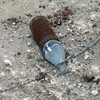
Lebanese troops today moved into more areas of the south of the country after Israeli forces withdrew, the United Nations said, as it continued to coordinate the deployment and stepped up its work to clear the masses of deadly unexploded ordnance that litter the countryside. “The Lebanese Army has started the deployment in the general area of Bastra and the area south of the Kafr Shuba and Shaba villages in the Eastern part of South Lebanon where the Israeli Defence Forces (IDF) withdrew on 30 August,” the UN Interim Force in Lebanon (UNIFIL) said in a press release. Read more about Lebanese army deploys in more areas of the south; UN helps clear deadly ordnance
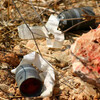
The top United Nations aid official today criticized Israel’s heavy use of cluster bombs in the last three days of the war with Hizbollah, describing their use as “immoral” and warning that up to 100,000 deadly bomblets still lie unexploded across vast areas of southern Lebanon where they are maiming and killing people every day. Under-Secretary-General for Humanitarian Affairs Jan Egeland also said that around a quarter of a million Lebanese returnees who fled their homes during the month of fighting were unable to return because of the devastation or for fear of injury caused by these and other unexploded ordnance. Read more about Israel's immoral use of cluster bombs in Lebanon poses major threat
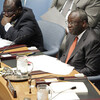
Briefing the Security Council today on the situation of Palestinians in the Middle East, the top United Nations political officer painted a grim picture of developments over the past 12 months, warning that the vision of Israel and Palestine living peacefully side-by-side has slipped “further away,” and stressing the need for a renewed international effort in the region. In an open meeting of the Council, which also heard speeches from almost 30 countries, the Under-Secretary-General for Political Affairs, Ibrahim Gambari, listed six main reasons why the situation had changed so much from a year ago. Read more about UN official paints grim picture of Palestinian situation
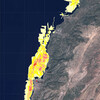
Following assurances from Israeli authorities of safe passage for its flights, the UN’s Environmental Programme (UNEP) is swiftly moving to begin aerial surveys of the massive oil spill that affected some 150 kilometres of Lebanese and Syrian coastline. An estimated 10,000 to 15,000 tons of oil spewed into the sea after Israeli missiles struck a power utility south of Beirut between 13 and 15 July but because of the recent conflict between Israel and Hizbollah, comprehensive aerial surveillance has not been possible until now. Computer models estimate that some of the oil has evaporated and significant amounts are on shore, but experts are uncertain how much remains at sea. Read more about UN environment agency set to begin aerial surveillance of Lebanese oil spill
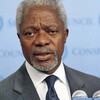
United Nations Secretary-General Kofi Annan has been in touch with top Israeli and Lebanese officials today following an Israeli raid in eastern Lebanon which he warned endangers the fragile calm that has generally held in the region since Monday. “The Secretary-General is deeply concerned about a violation by the Israeli side of the cessation of hostilities as laid out in Security Council resolution 1701,” a UN spokesman said in a statement. Adopted on 11 August, that text mandated a halt to the fighting which took effect three days later. Read more about Annan: Israel's ceasefire violation endangers fragile calm
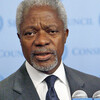
The conflict that has engulfed Lebanon and northern Israel over the past month is set to end on Monday when a cessation of hostilities called for by the United Nations Security Council enters into force, Secretary-General Kofi Annan announced today following talks with the leaders of both countries. “As I promised the Security Council yesterday, I have today been in touch with the Prime Ministers of Israel and Lebanon to discuss with them the exact date and time when the cessation of hostilities called for by the Council will enter into force,” Mr. Annan said in a statement, announcing that the two leaders have agreed that “the cessation of hostilities and the end of the fighting will enter into force on 14 August, at 0500 hours GMT.” Read more about Cessation of hostilities will begin on Monday, Annan announces
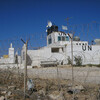
Civilians make up the overwhelming majority of the victims of this conflict, which broke out following Hizbollah’s capture of two Israeli soldiers on 12 July. According to the Lebanese Higher Relief Council, over 1,000 Lebanese have been killed and 3,600 wounded, while Israel’s Government reports that more than 40 Israeli civilians have been killed. An estimated one fourth of the entire population of Lebanon has been forced to flee their homes. Read more about Fighting between Israel and Hizbollah intensifies with UN positions hit again

The Security Council voted tonight to halt the deadly conflict that has engulfed Lebanon and northern Israel for the past month, passing a resolution that calls for an immediate cessation of hostilities followed by the deployment of Lebanese troops and a significantly expanded United Nations peacekeeping presence across southern Lebanon as well as the withdrawal of all Israeli forces from the same area. In a unanimous vote, conducted after weeks of intensive diplomacy with Secretary-General Kofi Annan pushing for action, the 15-member Council called for Hizbollah to stop all attacks immediately and for Israel to cease “all offensive military operations.” Read more about Security Council votes unanimously for an end to hostilities in the Middle East

There is a “clear and urgent need” to investigate attacks against civilians in Lebanon and northern Israel, the top United Nations rights official stressed at a special session of the Human Rights Council today, emphasizing that the crisis demands a meaningful response from the UN body and repeating the need for an immediate cessation of hostilities. “Civilians must never be the object of a direct intentional attack…And yet, almost on a daily basis, information from the field indicates an alarming pattern in the scale and choice of targets by all sides in the conflict,” UN High Commissioner for Human Rights Louise Arbour told the 47-member Council meeting in Geneva. Read more about Urgent need for inquiry into attacks on civilians in Lebanon and Israel - UN rights chief
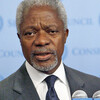
Observing that every day Security Council discussions go on, “the death, the killings and the destruction continues” in the Middle East, United Nations Secretary-General Kofi Annan said this morning that he was hopeful the Council can vote on a resolution to halt the conflict in the region before the end of the day. Annan, speaking to reporters as he arrived at UN Headquarters in New York, said: “I hope we should be able to do it [adopt a resolution] today. The will is there. We are close.” The Council has scheduled a meeting for later today to discuss the violence that has engulfed Lebanon and northern Israel for the past month. Read more about Annan hopeful Security Council can pass resolution on Israel-Lebanon conflict today









